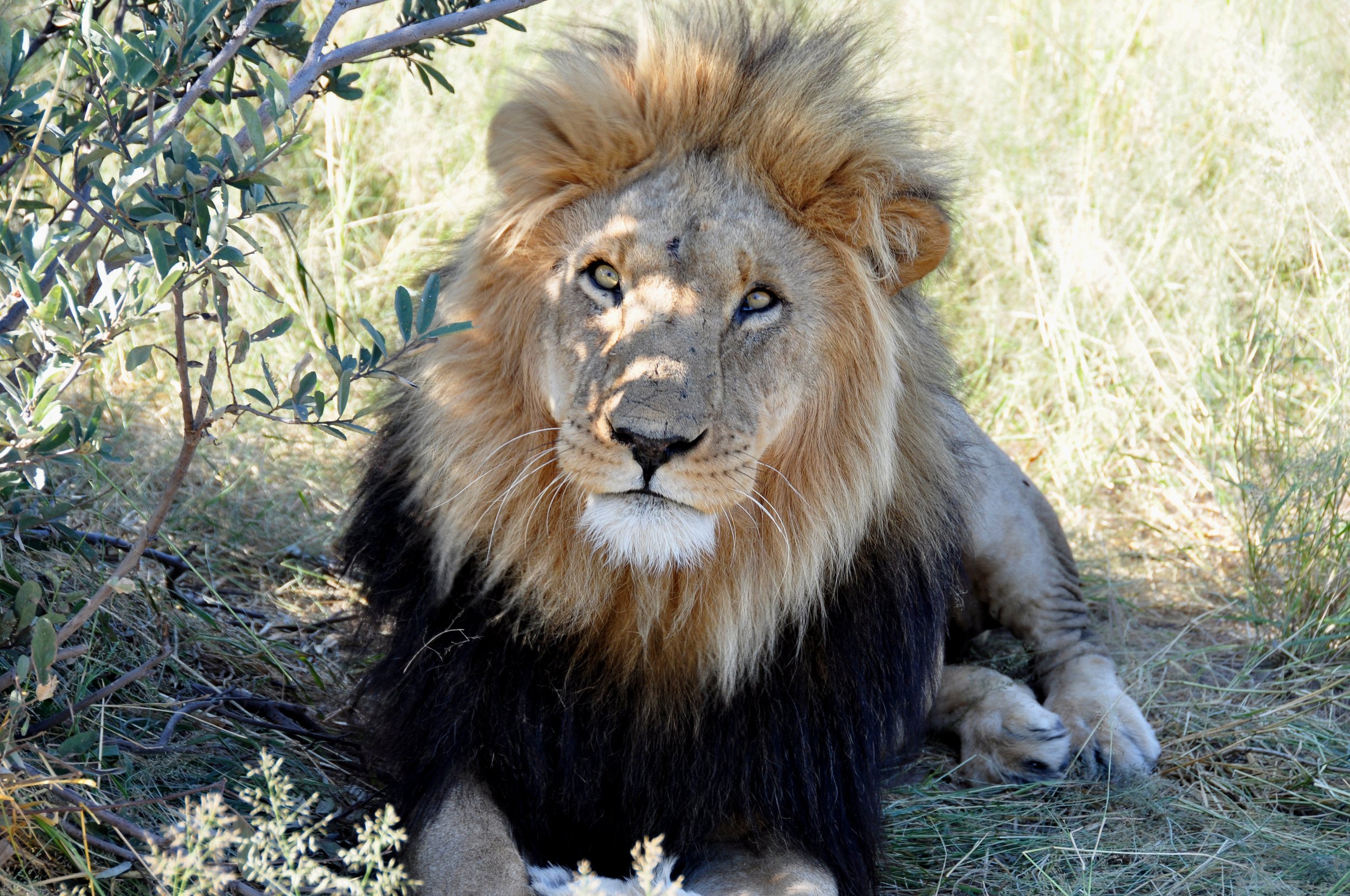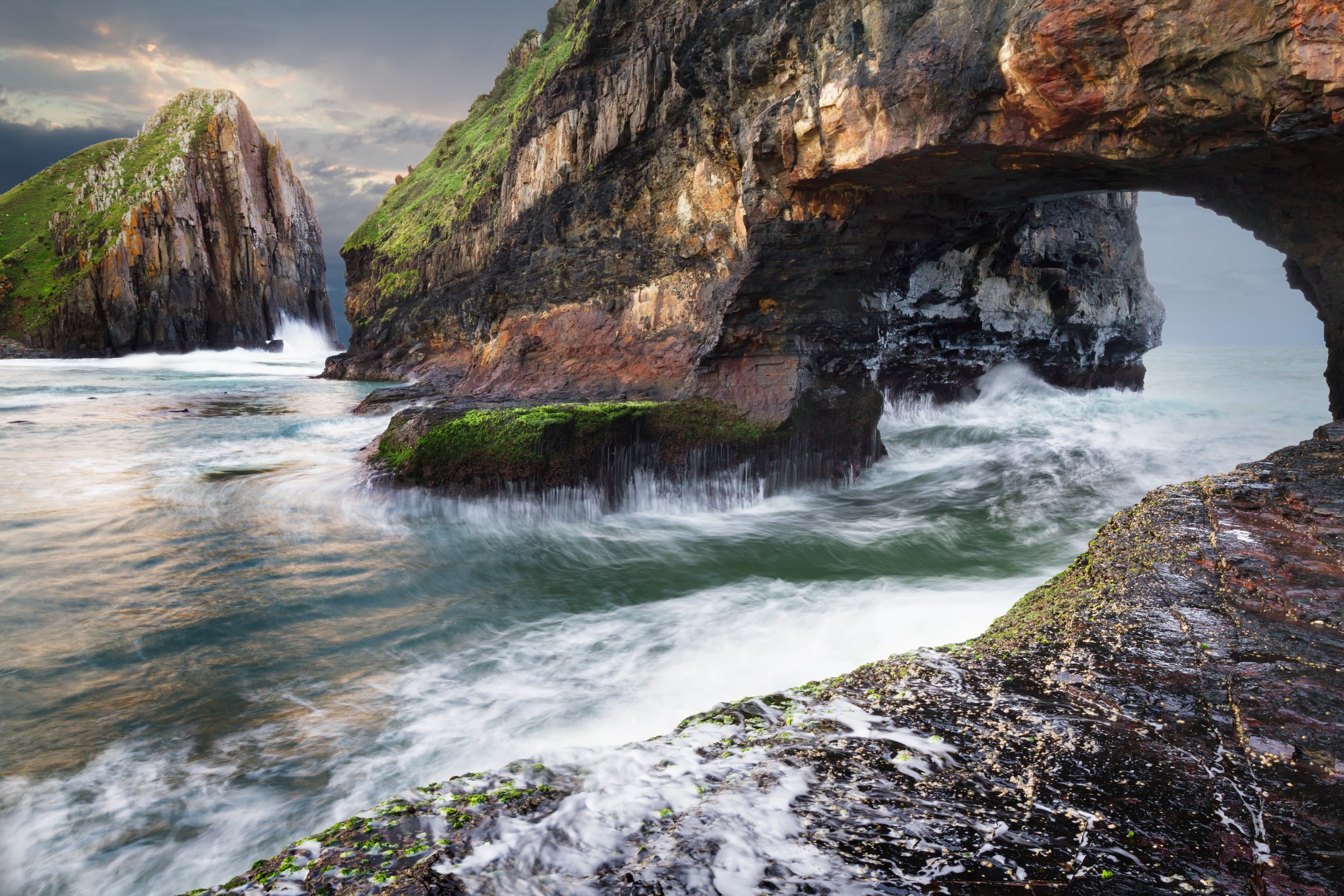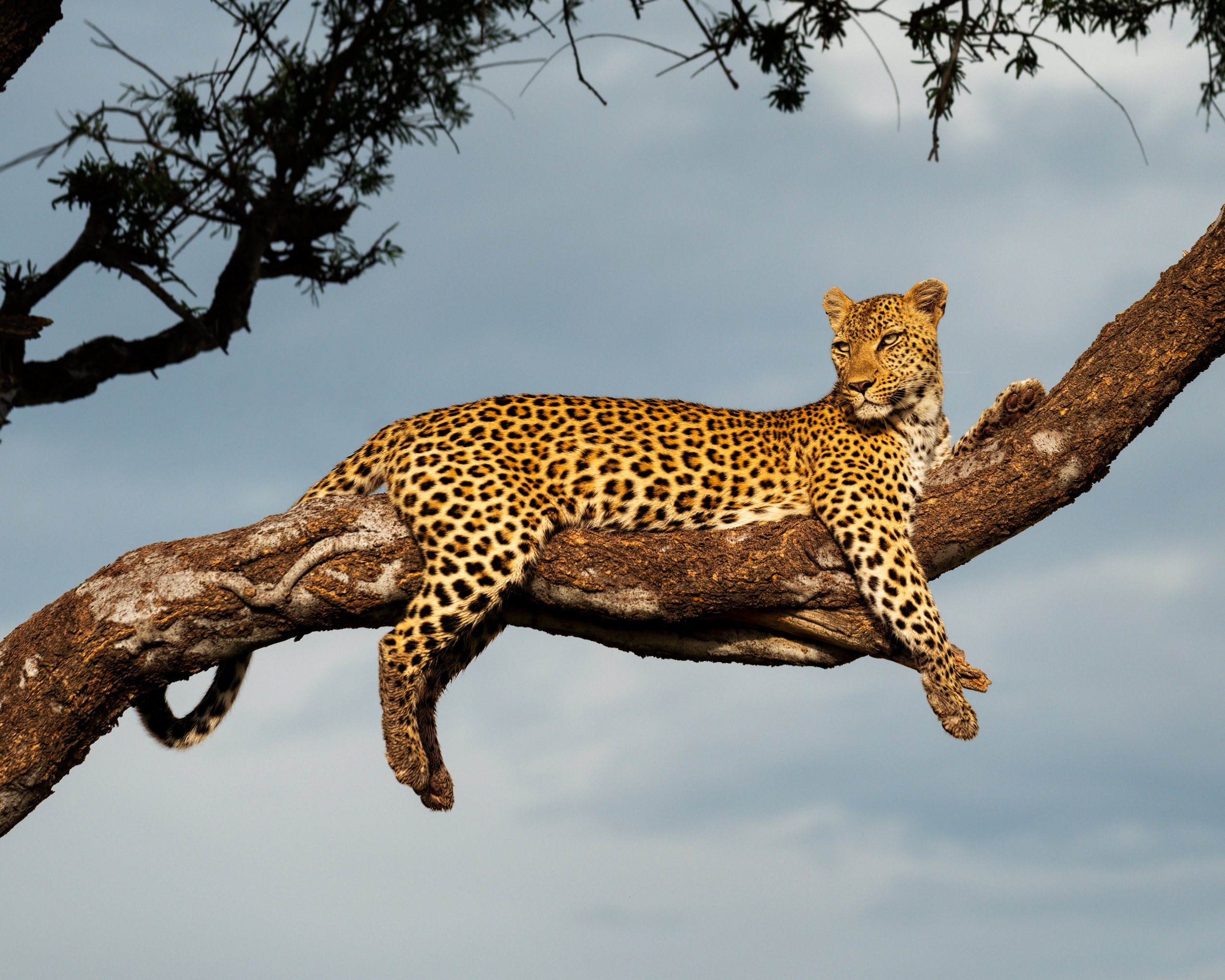What’s the Difference Between a Safari in Botswana and South Africa?
Written by Courtney Drysdale
Planning a safari adventure is an exciting experience, but choosing the right destination can be a daunting task. South Africa and Botswana are both renowned for their incredible wildlife, breathtaking landscapes, and immersive safari experiences. In this blog, we'll delve into the key differences between a safari in South Africa and Botswana, helping you make an informed decision as you book your dream trip.
Wildlife
Both South Africa and Botswana offer exceptional wildlife viewing opportunities, but the diversity and concentrations of animals differ between the 2 countries.
South Africa's Kruger National Park is home to the famous Big 5 (lion, leopard, rhinoceros, elephant, and Cape buffalo), as well as a wide range of other rare species such as cheetahs, wild dogs, and giraffes. KZN in South Africa and particularly Hluhluwe-iMfolozi Park also offers incredible access to these precious creatures. South Africa is also known for its coastline and the incredible marine life that call it home. Visitors can track whales as they move up the coast or experience some of the best dive spots in the world.
Botswana, on the other hand, boasts the vast Okavango Delta, where you can encounter unique species like the African wild dog, the elusive sitatunga antelope, mega prides of lion and the largest density of elephants in the world – to name but a few. Botswana's Chobe National Park is renowned for its massive elephant population, providing an unforgettable wildlife spectacle, the Savuti is known for its mega prides of lions and the Northern Okavango Delta for its buffalo. Botswana is also home to the Big 5, while you can see 4 of them in plenty of reserves you can catch all 5 with the addition of rhinos in Moremi Game Reserve and Khama Rhino Sanctuary is another great location to see these magnificent giants.
Best time to visit
South Africa offers favourable weather conditions throughout the year, making it a desirable destination for any season. The optimal time to visit depends on your preferred activities. For exceptional whale-watching and game-viewing experiences, the dry winter months (May to September) are highly recommended. While the south coast experiences wetter winters, its Mediterranean climate summer (November to March) allows for a diverse range of outdoor activities. If you are after long sunny days, the breathtaking Cape beaches are fantastic during the summer period. On the other hand, the northeastern coast boasts a subtropical climate and sprawling savannah plains, creating a humid summer environment that is ideal for birding enthusiasts. The KZN shoreline and Wild Coast are also perfect places to get some ‘Vitamin Sea’.
The optimal time to observe wildlife in Botswana is during the dry season (April to October) when animals are more active and the vegetation is less dense. This is also when the Delta floods, making it a great time for water-based activities. These months are a fantastic time to visit the salt pans, which will be dry from about June to September. Nonetheless, the rainy season (November to March) is also an excellent period to visit, offering abundant predator activity and the presence of newborn animals. However, it's worth noting that certain camps in the Okavango Delta might be closed during this period.
Costs
South Africa offers a range of options for travellers across different budgets in a variety of locations. Here is a brief overview of costs per person, per night, that does not include activities:
Entry-level: From €50/person
Mid: From €100/person
High end: From €500/person
Lux: From €1.500/person
A few factors to consider that may affect the price are whether the stay is located in a private game reserve like Sabi Sand or Klaserie and how remote the location is.
To read more about how to plan your entire South Africa trip, check out our South African Pocket Guide.
Botswana is more expensive, but the cost of a safari comes with truly outstanding and immersive wildlife viewing. Here is a brief overview of possible costs, per person, per night that does not include activities:
Entry-level: From €300/person
Mid-range: From €1.000/person
High end: From €1.500/person
Lux: From €2.500/person
Something very important to note is that prices differ enormously depending on the seasons. In the rainy or ‘low’ season, prices can differ from mid-season by about 20%, whereas the peak season prices are easily 50% higher than the low season.
However, don’t be put off, there are some other more cost-effective options to be found, but usually sit outside of game parks.
To read more about how to plan your entire Botswana trip, check out our Botswana Pocket Guide.
With regards to both countries, each has a range of exquisite stays, immersive experiences and fantastic wildlife and this can come at a decent price tag. However, this price does pay itself off very quickly in the form of exploring the Okavango Delta or Makgadikgadi Salt Pans, witnessing the Big 5 in Kruger or diving amongst colourful coral reefs and marine life like turtles and whale sharks.
Experiences
Both South Africa and Botswana offer a wide range of safari experiences, ensuring that every traveller finds something that resonates with their interests. Both offer fly-in safari options for extra convenience.
South Africa's established tourism infrastructure allows for a variety of activities, including guided game drives, bush walks, and even hot air balloon safaris in places like national parks and game reserves located all across the country. Visitors can experience beach and bush safari combos and explore a variety of malaria-free areas.
Botswana, on the other hand, also offers these elements but is also renowned for its water-based safaris, where you can explore the Okavango Delta's channels and lagoons in traditional Mokoro canoes. The opportunity to witness the incredible wildlife from a different perspective adds an extra layer of magic to your safari experience. The Makgadikgadi also allows visitors to see the large zebra migration or go animal tracking with a San Guide.
Sustainability
Both South Africa and Botswana are true exemplars of sustainable development.
Some statistics highlighting why South Africa is a sustainable country:
The South African tourism landscape has given high importance to integrating cultural tourism, as emphasised in the National Responsible Tourism Development Guideline.
In light of South Africa's active engagement in COP26 and the Sustainable Development 2030 Agenda, the nation has made a commitment to uphold and enforce eco-friendly measures in the tourism industry. These efforts aim to foster energy efficiency, conserve water, and minimise waste generation.
In South Africa, national parks cover 37.4% of the protected areas, providing vital conservation for four important biomes: desert, Nama-Karoo, Savanna, and Succulent Karoo. These national parks play a significant role in safeguarding these diverse ecosystems.
Some points highlighting why Botswana is a sustainable country:
Botswana encompasses a few of the largest intact ecosystems in the world, including the Okavango Delta, Central Kalahari Game Reserve, Moremi Game Reserve, the Chobe Region, Makgadikgadi Salt Pans and many more.
Botswana’s government is investing in renewable energy, water conservation and early warning systems as a part of their national climate change adaptation strategy to future-proof their country and anticipate climate change-related weather events.
As a part of their sustainable management strategy, Botswana focuses on high-value, low-volume tourism. This model ensures a quality over quantity safari experience.
Both Botswana and South Africa recognize the equal significance of community and wildlife conservation for achieving sustainable development in their respective countries.
Scenery
When it comes to breathtaking landscapes, South Africa and Botswana each have their distinct allure.
South Africa offers a diverse range of scenery, from the iconic Table Mountain overlooking Cape Town and picturesque coastal drives along the Garden Route to the rugged peaks of the Drakensberg Mountains and the vast grassland of the Greater Kruger area.
In contrast, Botswana's stunning landscapes are dominated by the Okavango Delta's labyrinth of waterways, lush marshes, and sprawling grasslands. The starkly beautiful Makgadikgadi Salt Pans and the vastness of the Kalahari Desert also add to Botswana's unique appeal.
Accommodation
Both South Africa and Botswana offer a wide range of accommodation options, catering to different budgets and preferences.
South Africa boasts a diverse array of lodging, ranging from luxurious safari lodges and private reserves to comfortable tented camps and self-catering accommodations.
In Botswana, the focus is often on intimate, high-end safari camps, offering an immersive experience in the heart of nature. These camps range from elegant tented accommodations to exclusive lodges.
Privacy
For those seeking an intimate and secluded safari experience, Botswana often takes the lead. Its low tourism density and emphasis on exclusive, high-end camps and lodges provide a greater sense of privacy and tranquillity.
In South Africa, particularly in popular reserves like Kruger, there is generally a higher volume of visitors, which can affect the sense of solitude and peacefulness during game drives. However, Greater Kruger boasts a range of exclusive and secluded escapes on private reserves.
Ease of travel
Visa requirements
In both Botswana and South Africa, most commonwealth countries do not need a visa to enter. Find out the exact requirements for South Africa here and for Botswana here.
Getting around
South Africa offers an impressive and extensive road network, which makes it an ideal choice for first-time self-drive safari enthusiasts.
In Botswana, the road system is decent, but reaching remote destinations like the salt pans and the Kalahari can be more challenging and require some expertise in driving a 4x4 vehicle.
Both countries generally have good cell service coverage, although signal reception may be limited in more remote areas. It is always advisable to carry some cash with you for emergencies. For more specific tips and tricks to plan your safari in either country, we recommend referring to our South African and Botswana Pocket Guides.
Access to Cities
For travellers who wish to combine their safari adventure with urban exploration, South Africa offers greater access to vibrant cities. Johannesburg and Cape Town are major hubs with international airports, making them convenient starting points for your journey. These cities offer a rich blend of culture, history, and modern amenities, allowing you to experience the best of both worlds.
Botswana, on the other hand, has a more remote and exclusive feel, with limited urban centres and fewer options for city exploration.
Distances between Places
In terms of travelling, South Africa makes it easier to explore different regions within a single trip. You can easily combine a visit to Kruger National Park with the scenic delights of the Garden Route or the wine regions of Stellenbosch and Franschhoek with a quick flight (you can read more about how to combine a safari with your trip to Cape Town here).
Botswana's safari areas are spread out, and reaching different destinations often involves internal flights or extended road transfers. However, this also adds to the sense of adventure and remoteness that many travellers seek.
Delta or Drakensberg? Kruger or Chobe? A Wild World Awaits You.
Deciding between a safari in South Africa and Botswana ultimately comes down to your personal preferences and the type of experience you seek. South Africa offers a blend of diverse landscapes, abundant wildlife, and access to vibrant cities, while Botswana provides a more exclusive and remote safari experience. Whether you choose the iconic Kruger National Park or the pristine wilderness of the Okavango Delta, both destinations promise unforgettable encounters with Africa's remarkable wildlife and captivating natural beauty. Whichever you choose, a safari in South Africa or Botswana is sure to be a trip of a lifetime.






















